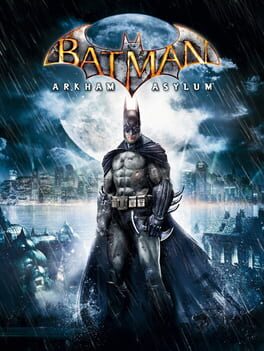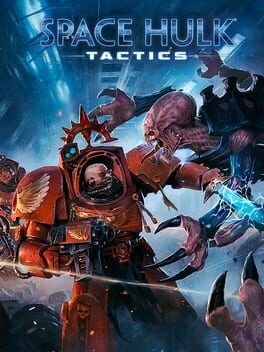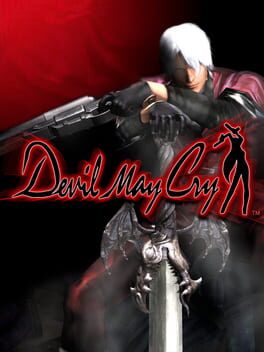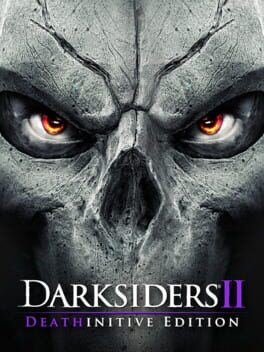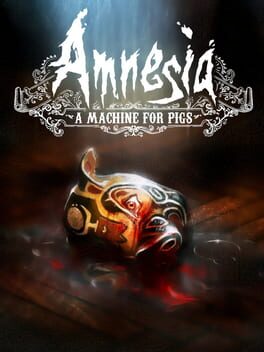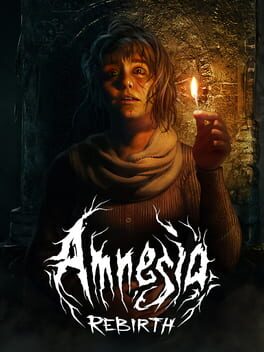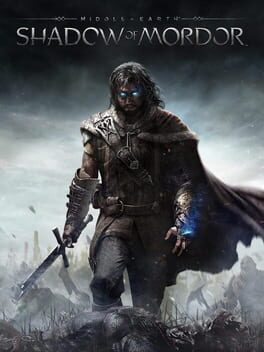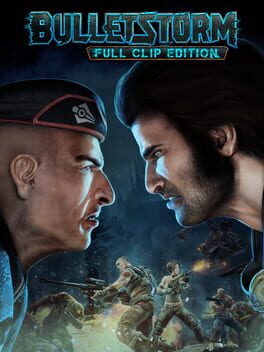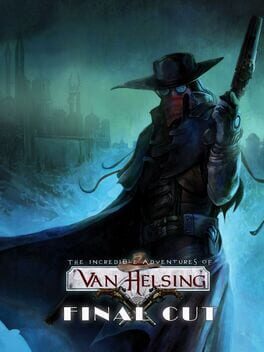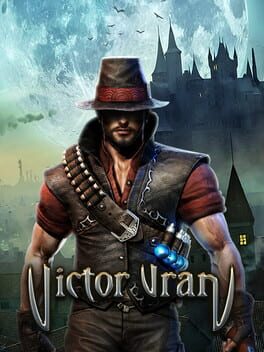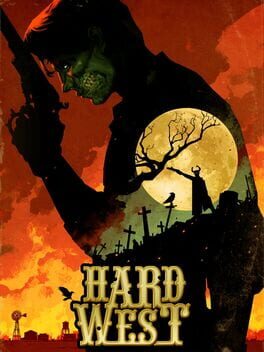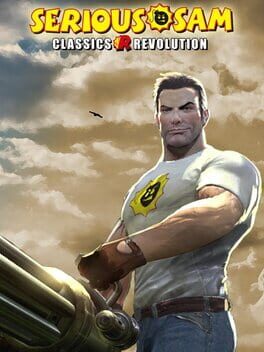BlueDemon75
Arkham Asylum is often mentioned only in passing, skipped over almost as a sidenote before the discussion inevitably switches to Arkham City. However, without Asylum there would be no Arkham series, and I don't mean only in the sense of being the first mind you. Rocksteady took their time to set down the core pillars of everything that makes the Arkham games what they are.
Become Vengeance: The excellent free-flow combat became the standard for not only Batman games but many other third-person action games started here, and it aged super well.
Become the Night: Predator mode, as you can't be The Night without instilling fear in the superstitious cowardly criminals picking them off from the shadows one by one. Simplistic but robust stealth system.
Become Batman: Gadgets and Detective vision allow Batman to interact with the environment, solve "puzzles" and pull some neat combat tricks.
All of it wrapped in a simple but very comic book-feeling storyline.
""The Joker took over the asylum! Mysterious serum turns inmates into monsters! if Batman can't stop him until the end of the night, Gotham will suffer!! Many iconic villains are included in Batman: Arkham Vol.1!!""
It feels very genuine to its roots, while getting us up to speed on the status quo of many characters, and showing at what point in his career this version of Batman is at.
Become Vengeance: The excellent free-flow combat became the standard for not only Batman games but many other third-person action games started here, and it aged super well.
Become the Night: Predator mode, as you can't be The Night without instilling fear in the superstitious cowardly criminals picking them off from the shadows one by one. Simplistic but robust stealth system.
Become Batman: Gadgets and Detective vision allow Batman to interact with the environment, solve "puzzles" and pull some neat combat tricks.
All of it wrapped in a simple but very comic book-feeling storyline.
""The Joker took over the asylum! Mysterious serum turns inmates into monsters! if Batman can't stop him until the end of the night, Gotham will suffer!! Many iconic villains are included in Batman: Arkham Vol.1!!""
It feels very genuine to its roots, while getting us up to speed on the status quo of many characters, and showing at what point in his career this version of Batman is at.
2018
If you are not into the powerfist CBT experience and just looking for a 40K Xcom this is not the game you are looking for. This isn't Xcom, It's a faithful recreation of the board game with the same name (with some added mechanics for extra spice).
Space Hulk tactics can be brutal, and will punish almost all mistakes you make. If you are into the high tension and planning your turns carefully, it's great.
The only warning to give is that Online Multiplayer is dead so only custom missions and the two campaigns are left, which are the main attractions in my opinion.
Space Hulk tactics can be brutal, and will punish almost all mistakes you make. If you are into the high tension and planning your turns carefully, it's great.
The only warning to give is that Online Multiplayer is dead so only custom missions and the two campaigns are left, which are the main attractions in my opinion.
2017
Sniper Elite 4 further evolves the series by taking the glimpses of freedom seen in SE3: Afrika and expanding it massively.
Every mission is an open map with multiple angles of approach, routes, and objectives that allow players to strategize how they will go about it all.
One of the common complaints of the series is that it's repetitive, and it can be if you only focus on just head-shooting every single enemy. But you can also be pretty creative with the tools given to you, set up ambushes using corpses as bait, shooting out lights for better infiltration, detonating grenades on enemy belts with precise shots, gaslight the AI using noise, set up an explosive domino effect with dynamite bundles, and the list goes on. Emergent gameplay that's only possible through the player's creativity. Dare I say Sniper Elite 4 comes dangerously close to being an immersive sim.
As for the plot, there isn't a whole lot to say really, as usual for the series, the story is background fluff to justify bursting nazis' vital organs with high-caliber weapons, and that's good enough for me. Sniper Elite as a series always focused on moment-to-moment gameplay in its infiltration and sabotage scenarios rather than some grand narrative.
Every mission is an open map with multiple angles of approach, routes, and objectives that allow players to strategize how they will go about it all.
One of the common complaints of the series is that it's repetitive, and it can be if you only focus on just head-shooting every single enemy. But you can also be pretty creative with the tools given to you, set up ambushes using corpses as bait, shooting out lights for better infiltration, detonating grenades on enemy belts with precise shots, gaslight the AI using noise, set up an explosive domino effect with dynamite bundles, and the list goes on. Emergent gameplay that's only possible through the player's creativity. Dare I say Sniper Elite 4 comes dangerously close to being an immersive sim.
As for the plot, there isn't a whole lot to say really, as usual for the series, the story is background fluff to justify bursting nazis' vital organs with high-caliber weapons, and that's good enough for me. Sniper Elite as a series always focused on moment-to-moment gameplay in its infiltration and sabotage scenarios rather than some grand narrative.
2001
Darksiders 2 is a very ambitious sequel. Aside from the hack-n-slash from the previous game, it tries to expand on so many directions, lots of extra content, side quests, world building, light RPG elements, collectibles, several different puzzle mechanics, a semi-open world, optional dungeons, optional bosses, extra campaigns, etc.
It tries to be bigger and better in every sense of the word, it doesn't excel in everything but at its core, the hack-n-lash remains solid fun, but by the end of the 20h campaign, it does outstay its welcome.
It tries to be bigger and better in every sense of the word, it doesn't excel in everything but at its core, the hack-n-lash remains solid fun, but by the end of the 20h campaign, it does outstay its welcome.
Gameplay wise Amnesia: A Machine for Pigs is a disappointment. I would go as far as to say it is not scary in the traditional sense. But narrative-wise? If you give it some thought it will hang around your head for far longer than just some monster chasing you in the dark. It is a great reflection on the horror and abuse humans are capable of inflicting on each other and is perhaps the most disturbing narrative the series ever had. Now that it can no longer be pinned as the "death" of the series, and you were mad at it in the past like I was, consider it giving a second chance with a fresh set of eyes and an open mind. You might be surprised.
[ Full review at https://bluedemonarchive.blogspot.com/2022/12/review-amnesia-machine-for-pigs.html ]
[ Full review at https://bluedemonarchive.blogspot.com/2022/12/review-amnesia-machine-for-pigs.html ]
2020
Rebirth was made very much for the old fans that have been speculating about deep lore for years, it further connects and explores the amnesia universe, yet it doesn't lean too much into nostalgia bait. The overarching narrative is about motherhood, past trauma and the fears associated with it.
"But is it scary thought?" Well horror is subjective. But if you are a thrill seeker and in it just for the spooky monsters and scary jumpscares, rebirth has some stand out intense moments but if you are expecting non-stop chases à la outlast you will be dissapointed. It is a slower paced deal.
"But is it scary thought?" Well horror is subjective. But if you are a thrill seeker and in it just for the spooky monsters and scary jumpscares, rebirth has some stand out intense moments but if you are expecting non-stop chases à la outlast you will be dissapointed. It is a slower paced deal.
Basically, it's Assassins Creed: Lord of The Rings, in the vain of the old AC formula, the unique selling point here is the nemesis system, introducing a dynamic reactivity to Orc bosses each with their own weaknesses, strengths, and personality.
It uses Arkham-style combat which is fun, although it can be a tad too easy, especially as you unlock busted skills. The game is severely condensed and that's a good thing, there is filler content sure, but you won't be flooded with 400 collectibles like in AC. For context I 100% completion in 20h.
It uses Arkham-style combat which is fun, although it can be a tad too easy, especially as you unlock busted skills. The game is severely condensed and that's a good thing, there is filler content sure, but you won't be flooded with 400 collectibles like in AC. For context I 100% completion in 20h.
2017
An odd and ambitious LEGO collectathon sand box. While discovering and messing around with fresh items and vehicles can be quite fun, once that well dries up all you are left with is the random generation of quests, maps, and golden bricks. The overall lack of direction, even in adventure mode, can make the game pretty dull. Also ridden with several bugs.
The building mechanics are unintuitive, too clunky and slow to be satisfying, but also not complex enough to compete with the versatility of actual LEGO bricks or even LEGO Digital Designer.
I have no clue why this got marketed as a Minecraft competitor, as it is fundamentally different in everything except the vague sandbox genre tag.
The building mechanics are unintuitive, too clunky and slow to be satisfying, but also not complex enough to compete with the versatility of actual LEGO bricks or even LEGO Digital Designer.
I have no clue why this got marketed as a Minecraft competitor, as it is fundamentally different in everything except the vague sandbox genre tag.
The first 40 minutes of Bulletstorm will be the most god-awful boring shit you have ever played in your life. Hand-holding, aggressively scripted, QTE's every 15 seconds with the most try-hard edgy "Gearbox Certified" dialog. Pretty much every awful design trope of the time is in those 40 minutes.
But then, out of nowhere, it gets... good?
Once the game takes off the metaphorical leash of your neck and hands it to you as a weapon, an energy whip that enables some creative environmental kills, combat becomes a joy. And to top it off an arcade scoring system is in place to reward creative kills, that's just dopamine shots directly into my hypothalamus.
It has its shortcomings, the story is dogshit, but when measured against other COD killers of the time (like Homefront) Bulletstorm is far more creative and interesting. It's a unique curiosity well worth a play, especially if you are into oddities.
[ Full review at https://bluedemonarchive.blogspot.com/2022/12/mini-bulletstorm-fullclip-edition.html ]
But then, out of nowhere, it gets... good?
Once the game takes off the metaphorical leash of your neck and hands it to you as a weapon, an energy whip that enables some creative environmental kills, combat becomes a joy. And to top it off an arcade scoring system is in place to reward creative kills, that's just dopamine shots directly into my hypothalamus.
It has its shortcomings, the story is dogshit, but when measured against other COD killers of the time (like Homefront) Bulletstorm is far more creative and interesting. It's a unique curiosity well worth a play, especially if you are into oddities.
[ Full review at https://bluedemonarchive.blogspot.com/2022/12/mini-bulletstorm-fullclip-edition.html ]
2015
Victor Vran is a decently fun game, that tries to do a few things differently resulting in a streamlined ARPG.
There are no classes or skill threes, you are Victor Vran the monster hunter and your abilities are attached to the weapons type you wield, of which there are 8 (10 with the Motorhead DLC), 2 demon powers that burn a special resource akin to adrenaline, and a set of cards that grants a few perks, but overall it's not super versatile when it comes to build variety.
It's not a bad game, had my fun with it but it's clearly an indie ARPG done on a small budget. It's not something I would return for multiple runs as the lack of variety really hurts it.
As I see it, Victor Vran's simplicity is better suited for beginners of the genre, particularly those who feel other games are too overwhelming to get into. The downside is that everything lacks a certain depth, don't expect the gameplay to feel fresh for hundreds of hours like other titles in the genre can.
There are no classes or skill threes, you are Victor Vran the monster hunter and your abilities are attached to the weapons type you wield, of which there are 8 (10 with the Motorhead DLC), 2 demon powers that burn a special resource akin to adrenaline, and a set of cards that grants a few perks, but overall it's not super versatile when it comes to build variety.
It's not a bad game, had my fun with it but it's clearly an indie ARPG done on a small budget. It's not something I would return for multiple runs as the lack of variety really hurts it.
As I see it, Victor Vran's simplicity is better suited for beginners of the genre, particularly those who feel other games are too overwhelming to get into. The downside is that everything lacks a certain depth, don't expect the gameplay to feel fresh for hundreds of hours like other titles in the genre can.
2015
Normally when a game reaches for too much it feels unfocused and falls short on everything. Hard West is a rare exception, it tries to do, an experiment with a lot of things, but the core gameplay loop remains solid as hell regardless of what's surrounding it. And that alone to me is worth a recommendation to check out a game. To see something different.
While easily summarized as a wild west X-Com, that descriptor may set up some misleading expectations. While the combat systems themselves are similar, Hard West is vastly different in its structure. There's no persistent base building, research, items, or even units. Hard West is split into several small scenarios that will start you fresh with a new party and a clean inventory each time.
The protagonist and story beats may change from one scenario to another but they are in general connected. When you are not in turn-based combat, you find yourself in the overworld, here you can build your posse, visit item shops, story-related locations, and optional narrative encounters that depending on your choices may net you some weapons, curses, injuries, or blessings. Each scenario also features a unique overworld gimmick related to the current plot beat, these range from mining gold or cranking up your bounty, to managing the food rations of your posse.
Some complain that the overworld takes away too much time from the game, but I disagree, as a mechanic, it brilliantly gamifies one of the core aspects of a good western, the downtime in between the action, those lonely scenes featuring wonderful and vast vistas of the west.
As for the narrative, the main plot is a fitting cliche for the setting: A deal with the devil is done and a tale of greed, violence, and vengeance unfolds. On its own, it's not very deep or detailed, but the whole game is narrated by this universe's version of Death, done by an excellent VA that does a lot of heavy lifting along with the soundtrack to set the grim wild west tone.
The narration added to the overworld mechanics brings me the feeling of playing through someone's tabletop RPG campaign: "Hard Tales of Warren, the Vengeful Undead Gunman." In that way, I find the simplicity of it all quite enduring and it even gives me ideas of my own for some ttRPG sessions.
The only place where the game falters to me is that many of the scenarios end too quickly and could have used a few more combat encounters, often ending right when your current party starts to feel strong, leaving a taste of unfilled potential or lost progress, as once the scenario ends, say goodbye to that posse and hello to a new one.
There are a lot of interesting mechanics introduced that aren't explored to the fullest over the course of the game like the time of day, shadows, and supernatural abilities all feel a little underutilized. And to conclude, the game feels rather reluctant to embrace its weird west side, feeling a bit too restrained at times. Give me more demons, more insane characters, outlandish powers, weird places, and guns made by exorcist combat priests, please!
I'm sure the team also wanted to do more, and most likely it all came down to budget, manpower, and time. Regardless of my gripes, Hard West is well worth playing for western fans.
While easily summarized as a wild west X-Com, that descriptor may set up some misleading expectations. While the combat systems themselves are similar, Hard West is vastly different in its structure. There's no persistent base building, research, items, or even units. Hard West is split into several small scenarios that will start you fresh with a new party and a clean inventory each time.
The protagonist and story beats may change from one scenario to another but they are in general connected. When you are not in turn-based combat, you find yourself in the overworld, here you can build your posse, visit item shops, story-related locations, and optional narrative encounters that depending on your choices may net you some weapons, curses, injuries, or blessings. Each scenario also features a unique overworld gimmick related to the current plot beat, these range from mining gold or cranking up your bounty, to managing the food rations of your posse.
Some complain that the overworld takes away too much time from the game, but I disagree, as a mechanic, it brilliantly gamifies one of the core aspects of a good western, the downtime in between the action, those lonely scenes featuring wonderful and vast vistas of the west.
As for the narrative, the main plot is a fitting cliche for the setting: A deal with the devil is done and a tale of greed, violence, and vengeance unfolds. On its own, it's not very deep or detailed, but the whole game is narrated by this universe's version of Death, done by an excellent VA that does a lot of heavy lifting along with the soundtrack to set the grim wild west tone.
The narration added to the overworld mechanics brings me the feeling of playing through someone's tabletop RPG campaign: "Hard Tales of Warren, the Vengeful Undead Gunman." In that way, I find the simplicity of it all quite enduring and it even gives me ideas of my own for some ttRPG sessions.
The only place where the game falters to me is that many of the scenarios end too quickly and could have used a few more combat encounters, often ending right when your current party starts to feel strong, leaving a taste of unfilled potential or lost progress, as once the scenario ends, say goodbye to that posse and hello to a new one.
There are a lot of interesting mechanics introduced that aren't explored to the fullest over the course of the game like the time of day, shadows, and supernatural abilities all feel a little underutilized. And to conclude, the game feels rather reluctant to embrace its weird west side, feeling a bit too restrained at times. Give me more demons, more insane characters, outlandish powers, weird places, and guns made by exorcist combat priests, please!
I'm sure the team also wanted to do more, and most likely it all came down to budget, manpower, and time. Regardless of my gripes, Hard West is well worth playing for western fans.
A port that merges the first two classic games into one.
The idea is good, workshop support, new campaign, new survival mode, restored cut content... But it was left unfinished in an early access state for years, the development history is a complete mess, including literal unpaid interns. It has since been brought in line to a passable state but still remains rough around the edges.
Only worth a purchase on sale if you don't own the Classics yet, as it adds them to your Steam library (as separate executables) cheaper than buying them separately. Also, it's very ironic that the classic games are patched and run fine on modern systems without the need for Revolution at all.
The idea is good, workshop support, new campaign, new survival mode, restored cut content... But it was left unfinished in an early access state for years, the development history is a complete mess, including literal unpaid interns. It has since been brought in line to a passable state but still remains rough around the edges.
Only worth a purchase on sale if you don't own the Classics yet, as it adds them to your Steam library (as separate executables) cheaper than buying them separately. Also, it's very ironic that the classic games are patched and run fine on modern systems without the need for Revolution at all.
